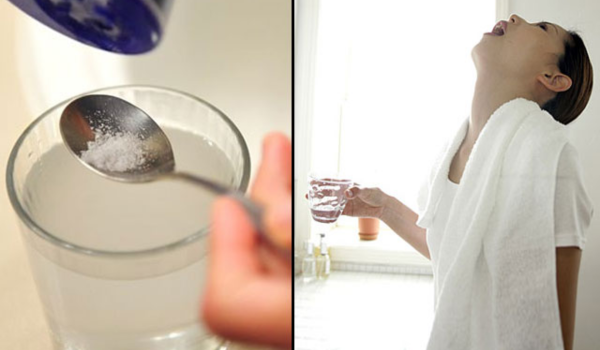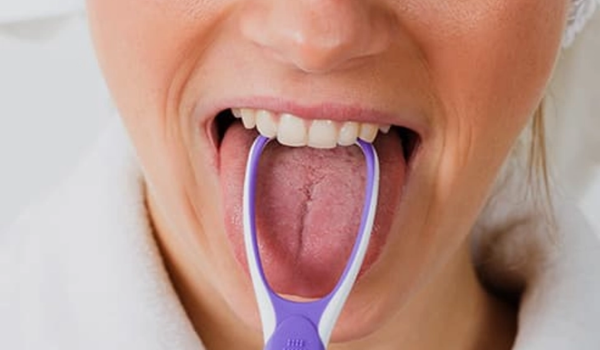Salt Water for Bad Breath: Natural Fresh Breath Remedy
Salt Water for Bad Breath: A Natural Remedy to Freshen Your Breath

Bad breath, also known as halitosis, is a common concern affecting millions of people worldwide. It can cause embarrassment, affect social interactions, and sometimes signal underlying health issues.
While there are many commercial products available to combat bad breath, one of the most natural, accessible, and effective remedies is surprisingly simple: salt water.
In this comprehensive blog post, we will explore how salt water can help combat bad breath, the science behind it, how to use it properly, its benefits and limitations, and other tips for maintaining fresh breath.
Whether you’re battling occasional bad breath or chronic halitosis, understanding the role of salt water in oral health could be a game-changer.
Understanding Bad Breath: Causes and Impact
Before diving into salt water’s benefits, it’s important to understand what causes bad breath.
Bad breath arises primarily from volatile sulfur compounds (VSCs) produced by bacteria breaking down food particles, dead cells, and other debris inside the mouth.
These bacteria thrive in places like the tongue, between teeth, and in gum pockets.
Common Causes of Bad Breath:
- Poor oral hygiene (plaque buildup, food debris)
- Dry mouth (xerostomia), reducing saliva flow that cleans the mouth
- Gum disease (gingivitis, periodontitis)
- Tongue coating with bacteria
- Certain foods (garlic, onions)
- Smoking and tobacco use
- Medical conditions such as sinus infections, diabetes, and gastrointestinal problems
Understanding these causes helps tailor the right approach for managing and preventing bad breath.
How Does Salt Water Help with Bad Breath?
Salt water is a natural antibacterial and cleansing agent that can support oral hygiene in multiple ways:
1. Reduces Bacteria in the Mouth
- Salt water creates a hypertonic environment that inhibits the growth of many oral bacteria responsible for producing foul odors.
- This helps lower the bacterial load on the tongue, gums, and teeth, reducing the source of bad breath.
2. Cleanses the Mouth and Removes Debris
- Rinsing with salt water helps loosen food particles and debris trapped between teeth and along the gumline, which bacteria feed on.
- This cleansing action reduces the buildup of odor-causing substances.
3. Promotes Healing and Reduces Inflammation
- Inflamed gums from gingivitis or other periodontal diseases often contribute to bad breath.
- Salt water’s anti-inflammatory properties soothe irritated tissues and promote healing, reducing gum-related odors.
4. Balances Oral pH
- A balanced oral pH helps control bacterial growth. Salt water rinse can neutralize acids in the mouth, creating a less hospitable environment for anaerobic bacteria that cause bad breath.
Scientific Evidence Supporting Salt Water for Oral Health
Salt water rinses are widely recommended by dental professionals for their beneficial effects. While specific research on salt water for bad breath is limited, related studies validate its oral health benefits:
- Bacterial Reduction: Research shows that saline rinses reduce plaque and oral bacterial counts, key contributors to halitosis.
- Post-Dental Procedure Care: Dentists frequently recommend salt water rinses after extractions, surgeries, and cleanings to prevent infection and inflammation.
- Gum Disease Improvement: Salt water rinses have been shown to improve gum health by reducing inflammation and bacterial presence, indirectly helping with breath odor.
How to Prepare and Use Salt Water Rinse for Bad Breath?
Using salt water for bad breath is easy and cost-effective. Here’s the step-by-step guide:
Ingredients:
- 1 cup (8 oz) of warm water (not hot)
- ½ to 1 teaspoon of non-iodized sea salt or regular table salt (preferably without additives)
Instructions:
- Dissolve the salt completely in warm water.
- Rinse your mouth with the solution for about 30 seconds to 1 minute.
- Swish thoroughly, ensuring the solution reaches all parts of the mouth, including the back of the tongue and gums.
- Spit out the salt water; do not swallow.
- Repeat once or twice daily for best results.
Tips:
- Use warm water to help dissolve salt better and soothe oral tissues.
- Avoid over-concentrated salt solutions as they can irritate sensitive tissues.
- Rinse gently to avoid aggravating inflamed gums or sores.

Additional Methods to Combat Bad Breath Alongside Salt Water
While salt water is helpful, combining it with other oral hygiene practices enhances its effectiveness:
- Brush and Floss Regularly: Plaque buildup and food trapped between teeth are major sources of odor. Brush twice a day and floss daily to remove these.
- Clean Your Tongue: Use a tongue scraper or toothbrush to clean your tongue, a common place for odor-causing bacteria to accumulate.
- Stay Hydrated: Dry mouth worsens bad breath by reducing saliva flow. Drink plenty of water throughout the day.
- Use Mouthwash Wisely: Mouthwashes with antibacterial agents can complement salt water rinses but avoid alcohol-based ones if you have dry mouth.
- Avoid Tobacco and Odorous Foods: Smoking and foods like garlic and onions contribute to bad breath; reducing or avoiding them helps.
When to See a Dentist for Bad Breath?
If bad breath persists despite good oral hygiene and home remedies like salt water rinses, it may indicate an underlying issue:
- Gum disease or infections
- Tooth decay or abscess
- Dry mouth caused by medications or medical conditions
- Sinus or respiratory infections
- Systemic health conditions like diabetes or liver problems
A dental professional can diagnose and treat the root cause, improving breath and oral health.
Myths and Facts About Salt Water and Bad Breath
Myth 1: Salt Water Permanently Cures Bad Breath
- Fact: Salt water reduces bacterial load and soothes the mouth but does not permanently cure underlying conditions causing bad breath.
Myth 2: The Saltier the Solution, the Better
- Fact: Excessive salt can irritate oral tissues and worsen symptoms. Use the recommended dilution for safe results.
Myth 3: Salt Water Can Replace Brushing and Flossing
- Fact: Salt water should be used as a supplement, not a substitute for regular oral hygiene.
Benefits of Salt Water Compared to Commercial Mouthwashes
| Aspect | Salt Water Rinse | Commercial Mouthwash |
| Cost | Very affordable and accessible | Often expensive |
| Ingredients | Natural, no chemicals or alcohol | May contain alcohol and chemicals |
| Safety | Gentle when diluted properly | Can cause dryness or irritation |
| Antibacterial | Mild, broad-spectrum | Targeted, sometimes stronger |
| Taste | Mild, neutral | Often strong or medicinal |
| Usage | Suitable for daily use | Some recommended for limited use |
Salt water rinses offer a safe, natural alternative for daily oral care, especially for sensitive mouths.
Additional Natural Remedies to Freshen Breath
For those seeking holistic options alongside salt water, consider:
- Chewing Fresh Parsley or Mint: Natural breath fresheners with antimicrobial properties.
- Oil Pulling: Swishing coconut or sesame oil may reduce bacteria and odor.
- Green Tea: Contains antioxidants and antibacterial agents.
- Baking Soda Rinse: Neutralizes acids and freshens breath (use occasionally).
How to Incorporate Salt Water Rinses into Your Oral Hygiene Routine?
To maximize the benefits of salt water rinses for bad breath, consider the following daily routine:
Morning:
- Brush teeth with fluoride toothpaste.
- Floss to remove trapped food particles.
- Rinse your mouth with salt water for 30 seconds.
- Scrape your tongue gently.
- Optionally, use a mild herbal mouthwash.
Throughout the Day:
- Drink plenty of water to keep your mouth hydrated.
- Avoid sugary snacks and odorous foods.
- Chew sugar-free gum or fresh herbs if possible.
Evening:
- Brush and floss thoroughly.
- Rinse again with salt water before bed.
- Avoid eating or drinking anything except water after your final rinse.
This routine helps control the factors that cause bad breath, with salt water acting as a natural cleanser and healer.

How Salt Water Rinses Compare to Other Remedies for Bad Breath?
In the quest for fresher breath, many people explore various remedies. Let’s compare salt water rinses to some popular alternatives:
1. Commercial Mouthwashes
Many mouthwashes contain antibacterial agents like chlorhexidine or cetylpyridinium chloride, which can be very effective.
However, they often come with drawbacks such as alcohol content that can dry out the mouth, harsh flavors, and potential staining of teeth.
Salt water rinses, on the other hand, are gentle, chemical-free, and affordable. They may not act as quickly as some medicated mouthwashes but are excellent for daily maintenance and sensitive mouths.
2. Tongue Scraping
Tongue scraping physically removes the coating of bacteria and debris on the tongue’s surface, a major source of bad breath.
While tongue scraping targets a key problem area, salt water rinses complement this by reducing bacteria throughout the entire oral cavity and soothing irritated tissues.
3. Herbal Remedies
Herbs like mint, parsley, and fennel have long been used to freshen breath. These can be chewed or made into teas.
Salt water rinses can be combined with herbal rinses for enhanced antibacterial and soothing effects.
Frequently Asked Questions (FAQ)
Can I use salt water rinse every day for bad breath?
- Yes, salt water rinses can be used daily but limit to 1-2 times to avoid drying out your mouth.
Will salt water rinse help if my bad breath is from digestive issues?
- Salt water helps with oral causes but not digestive or systemic issues causing bad breath. See a doctor if concerned.
Is it safe to swallow salt water rinse?
- No, always spit it out to avoid excessive salt intake.
Can salt water rinse replace toothpaste?
- No, brushing with fluoride toothpaste is essential for oral health.
How soon will I see results using salt water for bad breath?
- Many notice improvement within a few days of regular use.
Lifestyle Tips to Prevent Bad Breath Long-Term
Combining salt water rinses with healthy habits ensures lasting freshness:
- Quit smoking and limit alcohol: Both contribute to dry mouth and bad breath.
- Maintain regular dental check-ups and cleanings: Professional care removes stubborn plaque and diagnoses issues.
- Manage underlying health problems: Conditions like diabetes, sinus infections, or GERD can cause bad breath.
- Eat a balanced diet: Crunchy fruits and vegetables help clean teeth and stimulate saliva.
- Practice stress reduction: Stress can reduce saliva flow, worsening dry mouth.
When Bad Breath Indicates a Serious Problem?
Occasionally, bad breath may signal more than poor oral hygiene. Watch for:
- Persistent bad breath despite good care
- Pain or bleeding gums
- Dry mouth with thick saliva
- Changes in taste or mouth sores
- Other symptoms like fever or weight loss
If you experience these, seek medical or dental evaluation promptly.
Conclusion
Salt water is an age-old, natural remedy that offers multiple benefits in the fight against bad breath. Its antibacterial, cleansing, and soothing properties make it an excellent addition to your oral hygiene routine.
However, it’s not a cure-all. Maintaining consistent oral care practices, monitoring diet and hydration, and consulting professionals when needed are essential for long-term fresh breath and oral health.
Give salt water rinses a try. It’s easy, safe, and may just be the simple solution you need for fresher breath every day.
.